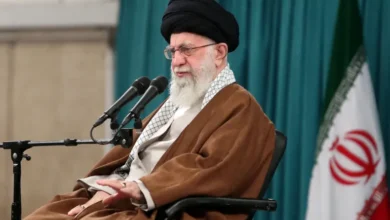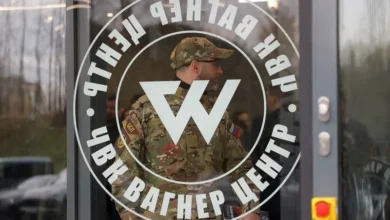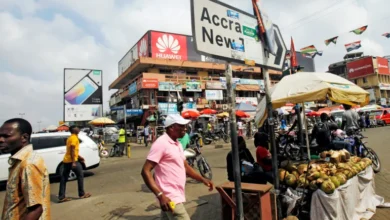‘Owning a home a dream’: Housing crisis hits Turks ahead of polls

Serhan Ulkucu and his wife had to bargain hard with their landlord before they could seal a deal to renew the annual lease for their family home in the Istanbul neighbourhood of Bostanci.
The monthly rent for the family’s two-bedroom flat, where they live with their seven-year-old son, has increased by 147 percent in a year, from 4,650 Turkish liras to 11,500 liras (about $600) – 25 percent more than the minimum wage in Turkey.“I have recently lost my job and my wife’s salary pretty much can just pay the rent,” 41-year-old Serhan, who used to work for an e-commerce company, told Al Jazeera.
“We will try to live on the legal severance pay I received until I find a new job; I don’t know what we would do if I did not receive that,” he said, adding that new tenants pay about 15,000 liras ($770) for flats similar to theirs.
Turkey has been going through soaring inflation and an economic downturn that have hit the country particularly hard since last year, in the run-up to critical presidential and parliamentary elections set to test public support for Turkish President Recep Tayyip Erdogan on May 14.
Although the continuing cost-of-living crisis affects all parts of life, the cost of housing specifically has significantly surpassed the already high general inflation rate.According to data from Turkey’s central bank, property prices across the country in February recorded (PDF) an annual increase of 141.5 percent in Turkish liras. Property prices have increased about 75 percent in US dollars during the same period.
The colossal increase in property prices is happening despite a continuing fall in property sales – in March the number of sales dropped 21.4 percent year-on-year, according to the Turkish Statistical Institute.
The cost of renting a property across Turkey was also up in March, 157 percent year-on-year, a report by the Center for Economic and Social Research (BETAM) at Istanbul’s Bahcesehir University said.
Meanwhile, official data showed annual inflation at 50.5 percent in March, down from a high of 85.6 percent in October, while the Inflation Research Group (ENAG), an independent group of experts, recorded March inflation as 112.5 percent – far behind the housing market rate.The government has scrambled to try and alleviate the housing crisis ahead of the elections.
In June 2022 rent hikes were capped at 25 percent for people who had lived in the same flat for fewer than five years. The initiative is valid for a year, until July.
However, Ulkucu’s family have lived in their flat for longer than five years, which legally gives their landlord the right to charge rent at the current market rate, even if that means a more than 25 percent rent increase.
In advance of the upcoming polls, Erdogan has also sought to get more working- and middle-class Turks on the housing ladder. Two ambitious construction projects have been announced, specifically for those who do not own property, and the president also promised to build hundreds of thousands of new homes across the country by 2028.
On Tuesday, Erdogan said in a campaign address in the southern city of Antalya that his government would announce more housing projects and further regulations to protect citizens.
“Through new housing projects and legal sanctions [protecting tenants] it will be us again who will solve the problem stemming from extortionate rents,” the president said.
Fall of purchasing power
In the meantime, though, Turks are feeling the pinch.
All three Turkish citizens who spoke to Al Jazeera said their purchasing power had fallen significantly since last year, with increases in their income not catching up with the hikes in expenses in the country, most strikingly the housing prices.
Bora Cikikcioglu, an engineer who has been working for 10 years, said that his rent increased from 4,000 liras at his previous flat one year ago to 10,000 liras (approximately $514) in the flat he lives now.
He added that people who stay longer in the same property are often hit by softer hikes in their rent.
“The main problem is to find a place to live without a bizarre lease price if one loses the apartment he or she is in,” the 38-year-old told Al Jazeera.
“Tenants do not feel safe in this environment,” Cikikcioglu added.
Both Cikikcioglu and Cagan, a long-term Istanbul resident, said that buying a property is a “dream” for Turks who work on salaries.
“For an individual who has been actively working for more than 20 years, it is impossible for me to live alone in the neighbourhoods of Istanbul that are feasible for me [for commuting to work],” 42-year-old Cagan, who did not want to share his last name, told Al Jazeera.
“When I cannot afford the rent, I need to live alone in Istanbul, how could it be possible for me to buy a flat in the current market conditions?” he asked.
Cagan, Ulkucu and Cikikcioglu believe that the inflation will not end and housing lease prices will continue to increase in the short-term, regardless of the result of the upcoming elections.The monthly minimum wage in Turkey was increased to 8,506.80 lira ($437) in January, approximately a 55 percent increase compared with the previous raise in July and about 100 percent more than January 2022.
But the depreciation of the Turkish lira means that money does not go as far as it once did.
The currency crisis first emerged in 2018, before it hit the country hard in the 2020s, leading to the lira dipping against reserve currencies, such as the US dollar and the euro.
The lira has fallen about 47 percent against the US dollar since the beginning of 2022, approximately 164 percent since January 2021 and more than 400 percent since early 2018.










